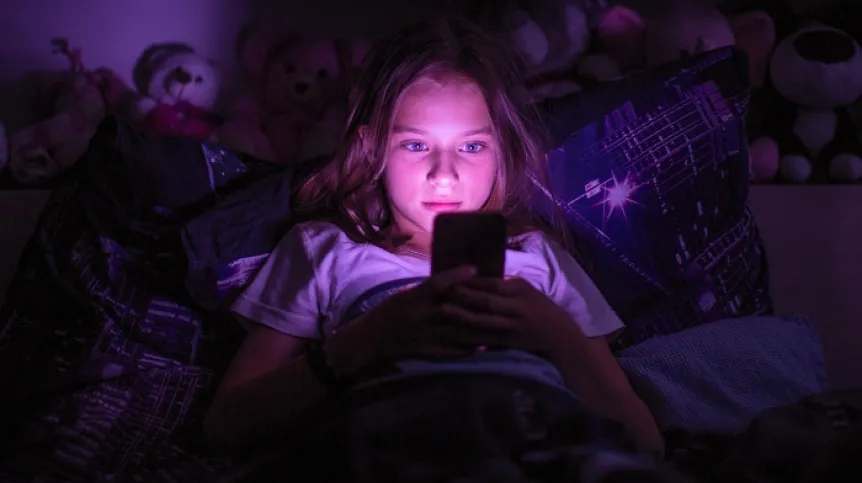
A new study shows that preschool children who use digital devices right after waking up and after dinner function worse than those who do it less often.
In the study named 'Toddler online’, researchers from the Maria Grzegorzewska University in Warsaw analysed the use of mobile devices by children aged 4-6.
'We wanted to find out whether the use of these devices before the child goes to school was associated with negative consequences, because that is what we are most afraid of,’ says study author Dr. Magdalena Rowicka.
'We know from other studies that the negative consequences can be anything from poorer language acquisition, poorer memory, problems with self-control, and even mental health deterioration,’ she continues. ’However, we were interested in whether the use of mobile screen devices (and media in general) could be associated with negative consequences in the area of executive functions already at preschool age.’
'During the preschool period, it is very important that the child has access to all forms of development, including physical development, such as running, jumping, tumbling, manual work: plasticine or play dough, as well as to acquiring social competences, i.e. spending time with other children.’
She adds that children who abuse technology may have problems with memory, controlling behaviour and emotions, and with creativity.
According to Dr. Rowicka, films or cartoons for young children are suitable for their age, perhaps because they have been produced long enough to know what content they should have. Applications, on the other hand, are a much newer technology and we should not be surprised that they may not yet be adapted to the developmental age, and thus may have little truly educational value.
'The child does everything perfectly well, receives positive feedback from the application, the parents are happy, so the child is also happy, because the child receives only positive signals. However, for this to have educational value, the child should think, analyse and even make mistakes, because that is what learning is about. So I think this is an important direction for the coming years to focus on this topic together with educators and experts,’ she says.
Researchers divided children into those who function very well and those who have problems. 'Of the four groups selected, two seemed the most interesting. One of them - very well functioning - made very few mistakes when performing tasks and completed them very quickly. This group accounted for 42 percent of the entire sample,’ the psychologist says.
'The second group solved the tasks very quickly, but made a lot of mistakes and accounted for 20 percent of the sample. Therefore, our basic question was what was the difference between those two groups,’ she adds.
It turned out that the children who did the tasks very quickly, but inattentively were the ones who spent the most time on the tablet. 'Perhaps on these tablets children used applications that were too simple for them. Such applications reward the child, but they only teach the child that completing a task very quickly equals very well and a reward', she explains.
The study also shows that children who function worse use devices right after waking up and before going to bed more often than the rest. Dr. Rowicka adds that these children also have difficulty focusing on other activities.
'If they are not allowed to use digital devices, they often lack ideas on what to do with their time,’ she says.
The researchers have observed that parents of children with functioning problems watch TV and use social media more often than other respondents.
'This is the issue of modelling behaviour by the parent. If the parent's nose is in the phone or tablet, the child will obviously want to imitate the parent', she says.
Dr. Rowicka says that there is nothing wrong with letting a child watch a cartoon or play a game on a tablet from time to time, assuming that the child also engages in other activities. 'Do not be afraid to give your child a phone or another device once in a while, because the most important thing is moderation', she points out.
She adds that if, for example, a parent allows their child to watch cartoons, they should watch together and then discuss them, because the lack of supervision can contribute to a decrease in the child's functioning in the future.
The study involved 744 children aged 4-6 and 744 parents, including 653 women (87.8 percent) and 91 men (12.2 percent). The average age of a parent is 33.83 years. Two types of research tools were used in the study: surveys and questionnaires, and tests. (PAP)
Delfina Al Shehabi
del/ mir/ joz/ kap/
tr. RL













